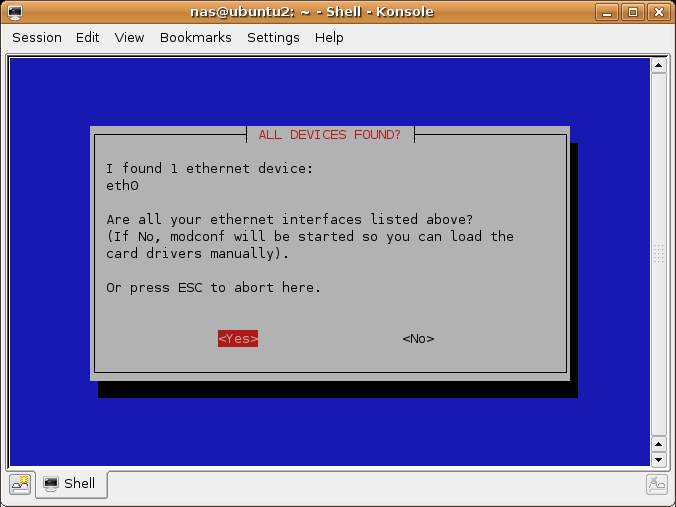Connecting an Ubuntu Linux System to a DSL Modem
This chapter covers the configuration of Ubuntu Linux to connect to the internet via a broadband DSL modem. before proceeding which this chapter it is important to understand the dangers of connecting a system directly to a DSL modem. Once the connection is established the Ubuntu Linux system will be directly visible to anyone on the internet. It is important to ensure that you have a firewall installed and running on the system to protect it from outside attack. The Firestarter firewall provides a easy to use and flexible firewall configuration environment. before reading this chapter we recommend first reading the Using Firestarter to Configure an Ubuntu Linux Firewall chapter of this book.
Configuring Ubuntu Linux to Connect to a DSL modem
Ubuntu Linux provides a useful tool called pppoeconf to configure a DSL connection. DSL connections are established using a protocol called Point-to-Point Over Ethernet, hence the pppoeconf name. If you have a recent release of Ubuntu Linux pppoeconf may already be installed. To run this utility open a terminal window select Konsole from the System Tools sub-menu of the Applications desktop menu). At the command prompt in the terminal enter the following command:
sudo pppoeconf
If pppoeconf cannot be found install it using the following command:
sudo apt-get install pppoeconf
Once installed execute sudo ppoeconf command again to view the initial screen:
Press Enter top begin the process. pppoeconf will scan your network devices until it finds a modem and then prompt you to enter the inmformation provided to you by your DSL provider. Enter this information and exit pppoeconf.
Establishing a DSL Connection
Once configured the DSL connection is established using the pon utility. To connect execuet the following command from a terminal window:
sudo pon dsl-provider
You are now connected to the DSL connection.
Disconnecting from a DSL Connection
The poff untility is used to close the connection to a DSL provide. To break the connection run the following command:
sudo poff



